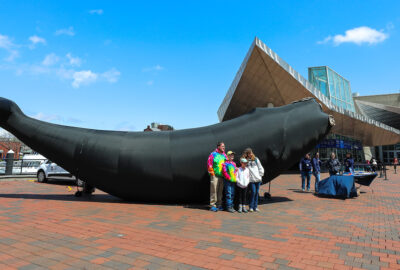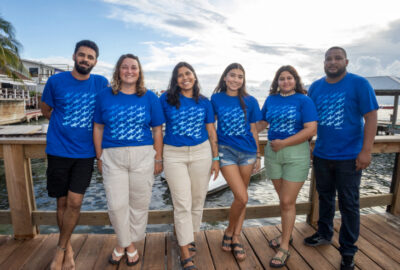Please note: We strongly recommend purchasing tickets in advance to guarantee entry, as we do sell out during school vacation week (April 19 – 27).
Staying Alive: Examining Post-release Survival of Sandbar Sharks
Scientists in our Anderson Cabot Center for Ocean Life are studying the post-release survival of sandbar sharks caught in the Massachusetts recreational land-based fishery
By New England Aquarium on Friday, August 23, 2024

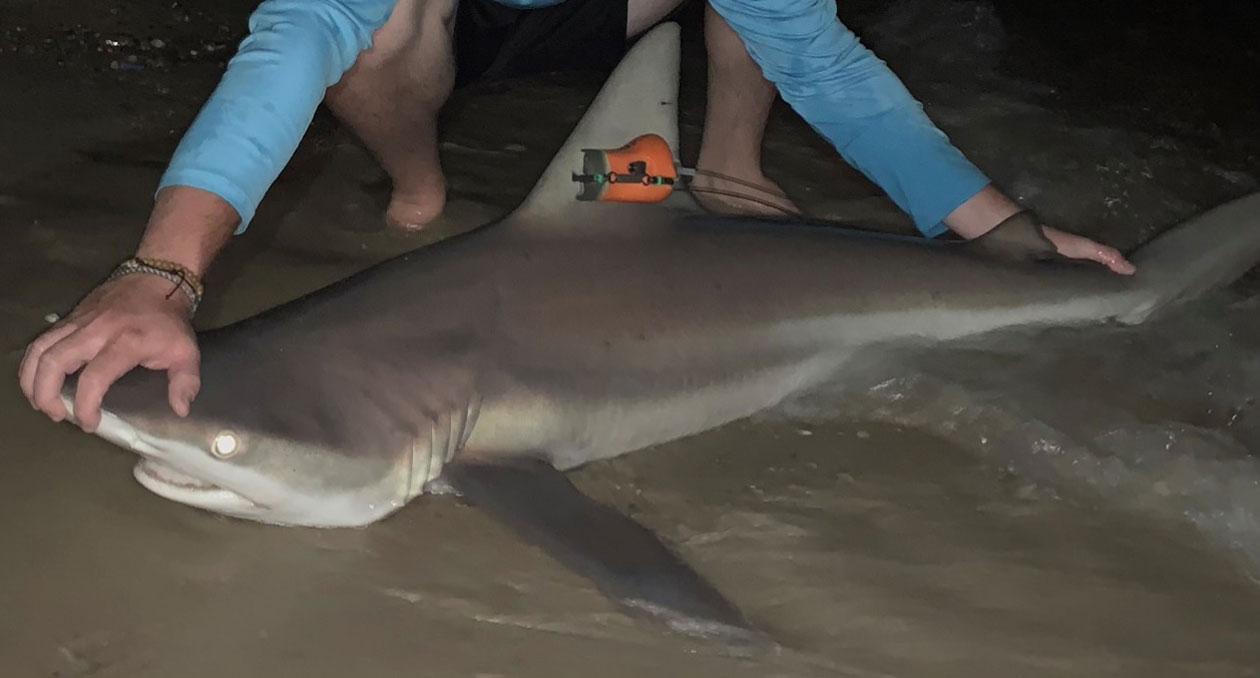
By Jeff Kneebone, Connor White, Caroline Collatos, and Nick Whitney
If you’ve ever taken a sunset stroll along the south facing beaches of Cape Cod or explored the sandy beaches of Nantucket, you may have seen lines of fishing rods staked in the sand with eager fishermen attentively watching and listening for signs of a bite. But what are these fishermen after? Well, in some cases, their target is smaller fishes like striped bass or bluefish. But for an increasing number of fishermen, they have their minds set on a much bigger fish: sandbar sharks.
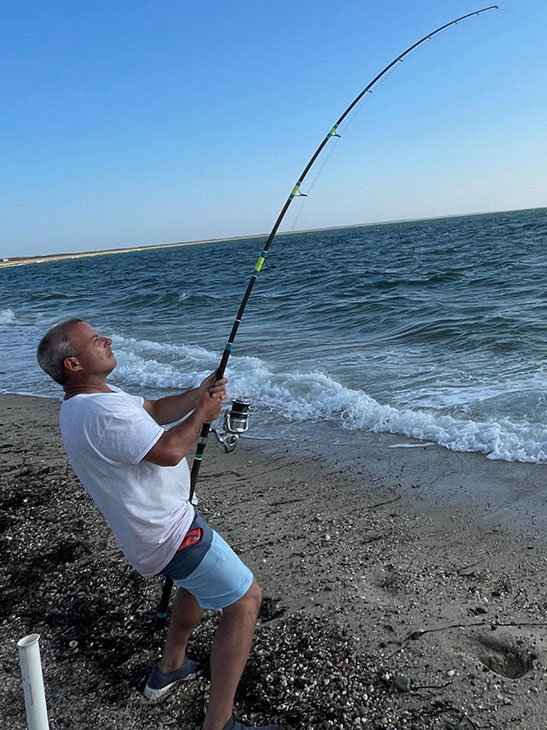
Recreational land-based shark fishing has occurred in Massachusetts along the Cape and Islands since the 1980s but increased in popularity in recent decades. That may be due in part to the increased sharing of information among anglers through social media demonstrating exciting fishing opportunities. It may also be due to the increased number of sandbar sharks that inhabit these waters during the summer months.
In the 1980s and 90s, sandbar sharks were the primary target species of the directed commercial shark fishery operating along the US east coast and Gulf of Mexico. This caused the population to decline and prompted the species to be prohibited, meaning they couldn’t be retained in commercial and recreational fisheries, in 2008. Fortunately, the strong regulations seem to have worked as designed and there is growing evidence that the sandbar shark population has rebounded. With the population rebound has come increased sandbar shark catch by land-based recreational fishermen. Due to state and federal laws still banning retention of the species, every sandbar shark that is captured must be released. The question is: do sandbar sharks survive after being caught and released from the shore?
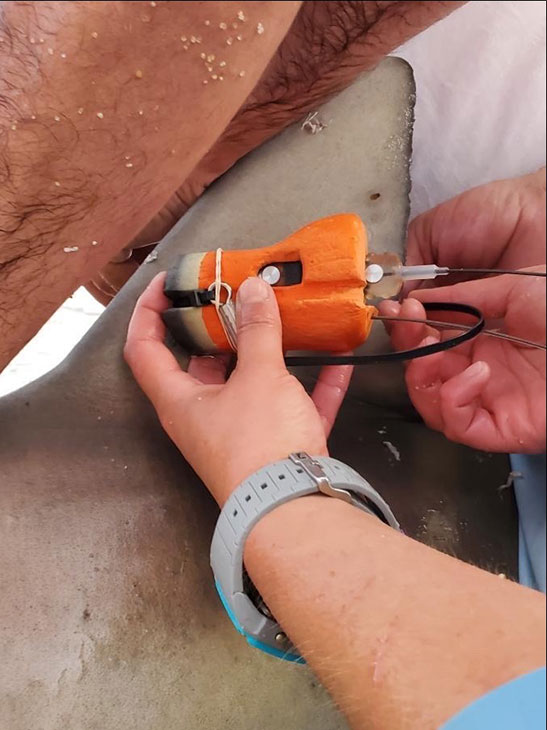
To answer this question, our scientists at the Anderson Cabot Center for Ocean Life at the New England Aquarium worked with volunteer recreational land-based shark fishermen of varying experience levels, and collected data from 67 sandbar sharks caught on Cape Cod and Nantucket from 2019-2021. To best match recreational fishery methods, volunteer fishermen were left to capture, handle, and release sandbar sharks in their usual manner. Scientists recorded several metrics during fishing events, including the gear anglers used, the area and manner in which fishermen handled the shark, the duration of the capture and handling process, and overt signs of any physical trauma to the shark. Using acceleration data loggers, which function like a Fitbit, scientists were able to record the movement of each shark, as well as water temperature and depth, providing insight into swimming behavior and the fate of the tagged fish.
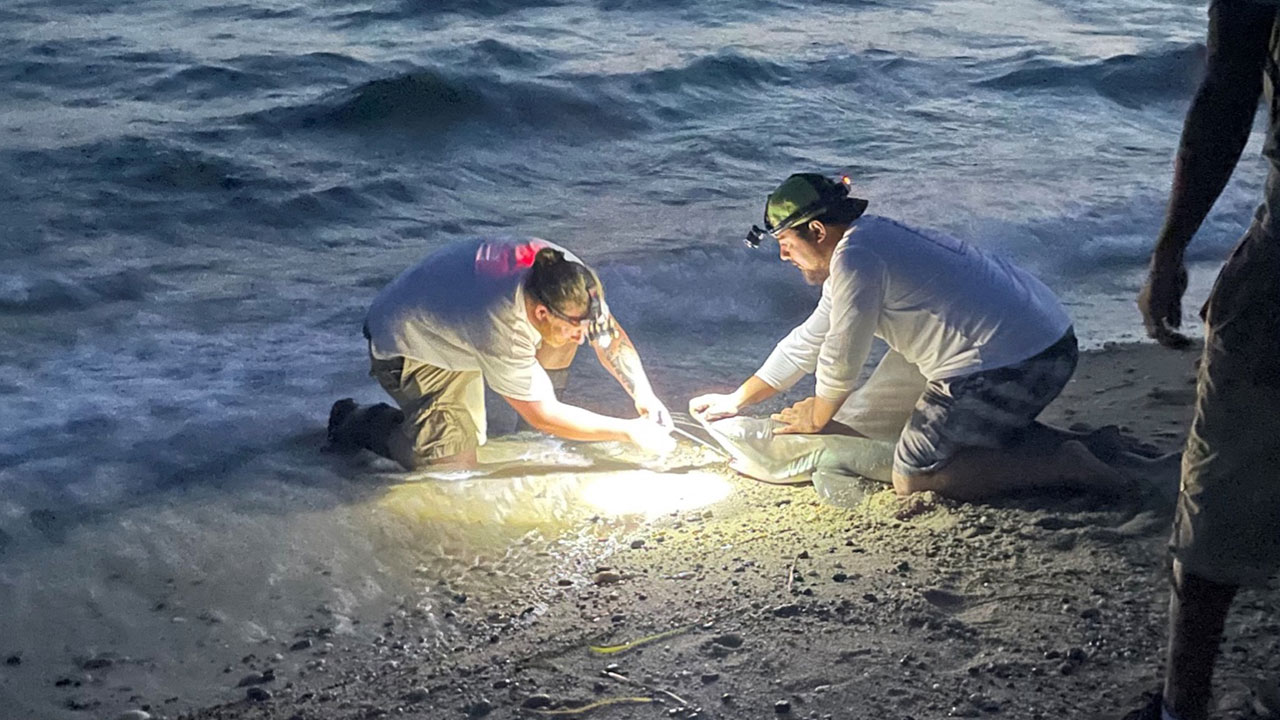
So what did we learn from all this research? Well, the main thing was that sandbar sharks are very resilient and capable of surviving both capture and handling in the Massachusetts recreational shore-based fishery. Despite enduring times on the line of over 30 minutes and sometimes being held out of the water for over seven minutes, all 67 sandbar sharks that were monitored were alive at the time when their tag detached and floated to the surface. Using detailed data from the Fitbit tag, we were also able to analyze several sharks’ swimming patterns to determine that, on average, they recovered from the catch and release event around six hours after release.
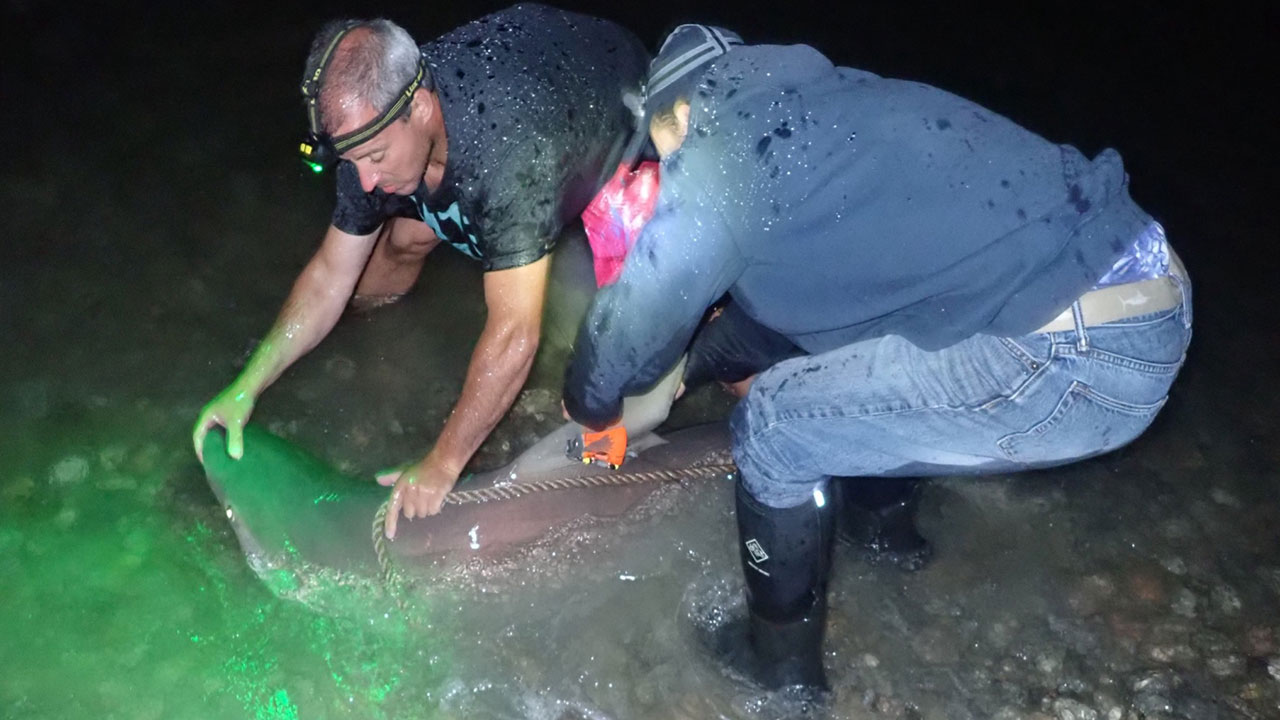
These results provide strong evidence that incidental mortality from the land-based shark fishery is low, which is good news given the growing popularity of the sport! However, these results should be interpreted with caution. It is important to remember that the volunteer anglers we worked with were responsible anglers who followed best practices and cared about the shark’s health. These anglers had a plan or protocol in place when they caught the shark, decreasing the handling time and stress the shark experienced during the capture event. Though not every angler in the sport adopts this practice, it can significantly impact the safety of both the fishermen and the shark.
So remember, when engaging in recreational fishing, it is crucial to research the best handling practices. Ensuring that your fish is released with minimal stress helps future generations of recreational anglers and preserves the population of fighting fish. It is also critical to stay up to date with state and local recreational fishing regulations, as they can differ by species and state. For instance, while targeting sandbar sharks is legal in Massachusetts, it is prohibited in other states like New Jersey.
Read the published research paper »
Funding for this study was provided by the NOAA Bycatch Reduction and Engineering Program.


